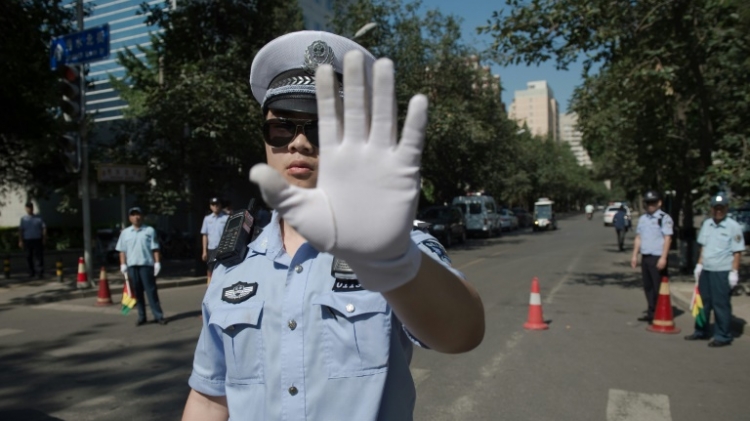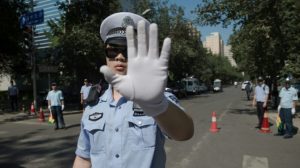President Xi Jinping’s campaign against religion has restricted freedoms of even state recognized religions

i24 News, 26 September 2016
 i24 News — A small Jewish community in Kaifeng, near the banks of China’s Yellow River, is the latest religious minority to come under the scrutiny of China’s communist government, the New York Times reports.
i24 News — A small Jewish community in Kaifeng, near the banks of China’s Yellow River, is the latest religious minority to come under the scrutiny of China’s communist government, the New York Times reports.
Members of the Kaifeng Jewish community are about 1,000 strong with Jewish roots, while about 100-200 still actively practice and attend cultural activities.
New York Times journalist Chris Buckley traveled to Kaifeng, where a revival of sorts pumped fresh life into the 1,000-year-old Jewish community in the 1990s.
There were talks of rebuilding the city’s lost synagogue, which was destroyed in the 1860s, as well as classes and religious services. Jewish tourists brought with them knowledge, stories, and traditions, and Jewish organizations set up offices to counter Christian missionaries in the region.
“We began with our old generation, which had no foundation,” a woman named Ms Guo told the newspaper. “But then all these different Jewish groups came in, bringing in different ideas and values.”
They lived largely undisturbed, and the city even saw the community as a positive aspect to promote tourism. That lasted up until last year, when the Kaifeng Jews came under the scrutinous eye of the government.
Beginning in 2015, the government shuttered organizations that nurtured the Jewish revival, removed Jewish monuments and signage from public spaces, and prohibited the community from gathering for religious services on holidays, said the New York Times.
The community says that the government’s crackdown on their religious practice is not one of anti-Semitism, but rather stems from the government’s fear of outside influence from all religions not officially recognized by the state.
China has five religions that are licensed by the state: Buddhism, Islam, Catholicism, Protestantism and Taoism. Only authorized religious establishments are allowed to operate openly.
President Xi Jinping’s campaign against religion has restricted the freedoms of even the state recognized religions.
Many members of the mostly Muslim Uighur community in Xinjiang complain of discrimination — including denials of passport applications — as well as controls on their culture and religion.
Chinese officials also restrict civil servants, students and children in the region from fasting during the holy month of Ramadan.
US President Barack Obama expressed his concern over China’s authoritarian treatment of religious minorities, as well as regional ethnic groups and political dissidents in a meeting last year.
A local businessman who supported the Jewish revival and asked to remain anonymous told the New York Times that “Xi has said that religion is a major issue, and when he speaks, that has consequences.”
They don’t understand us, and worry that we’re being used,” he continued, adding “It’s fear about religion, not just us Jews.”
Community members describe the new restrictions, which have forced those who want to be observant, to do so in small groups in their homes, sometimes with police or security officers watching.
“Before, the Chinese government was very relaxed, but now we’re under more restrictions,” You Yong, one of the locals said.
Another community member, who also asked not to be named fearing punishment from the government, told the New York Times that they just want to be recognized as Jews.
“Please remember, don’t make us out to be political,” he said. “We just want recognition as Jews.”
The New York Times journalist was invited to one of the family’s homes for Shabbat dinner, where his host told him, “You don’t recognize me as a Jew, but I recognize myself as a Jew, and that’s what is most important.”

